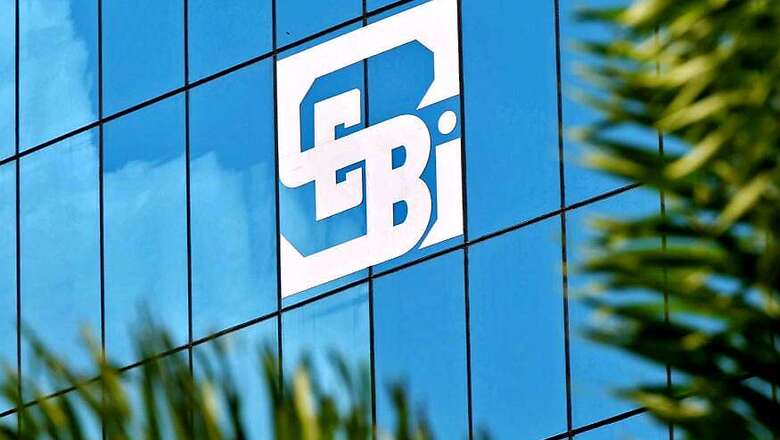
views
New Delhi: Cracking down on misuse of stock market for money laundering, regulator Sebi said it has stepped up "focused inspection" of suspected brokers and other entities leading to action against hundreds of them.
The capital markets watchdog has also enhanced its cooperation with other regulators and agencies in India as well as abroad for investigations.
Giving details of the trend in investigation cases in its latest annual report, Sebi said there was a significant increase in the number of cases taken up during 2016-17 mainly due to the references received from the Department of Income Tax in the matter of long term capital gain/short term capital loss in various scrips.
In 2016-17, 245 new cases were taken up for investigation and 155 cases were completed, compared to 133 new cases taken up and 123 cases completed in 2015-16.
Sebi said it is constantly striving to upgrade its investigative skills by making use of IT and other latest investigative tools.
Regarding the surveillance measures taken during last year, Sebi said it regularly conducts meetings with stock exchanges and depositories to keep track of market movements and surveillance activities.
Subsequently, action has been taken in the matter of dealing in shares of companies with poor fundamentals, as also "in cases of misuse of the stock exchange trading platform for tax evasion purposes, focused inspection of suspicious brokers and depository participants undertaken".
To deal with increasing instances of bulk fraudulent SMSes to investors at large, action was taken in a few cases to send a message to the market, while the depository alert system has been strengthened.
In one case, Sebi said, a telemarketer circulated bulk SMSes containing false news pertaining to a listed company on behalf of its alleged client. The telemarketer did not do due diligence of its alleged client and accepted cash for rendering services, thus "engaging in deceitful activity".
The exchanges also sought explanation from listed companies in hundreds of cases of rumour-mongering.
Inspections were also conducted of books of account, records and other documents pertaining to various market intermediaries such as venture capital funds, portfolio managers, mutual funds and investment advisors including to check compliance with respect to anti-money laundering (AML), combating of financing terrorism (CFT) and KYC norms.
Sebi said money laundering is globally recognised as one of the largest threats posed to the financial system of a country, while terrorist financing is another such emerging threat with grave consequences for both the political and economic standing of a jurisdiction.
"As in the past, during 2016-17 too Sebi continued focused efforts on strengthening the regulatory framework and minimising the risks emanating from money laundering and terrorist financing in the securities market," Sebi said.
It added that specific theme-based inspections of intermediaries focusing on compliance with KYC norms (including client due diligence) and AML/CFT guidelines were carried out.
During 2016-17, with respect to stock brokers, Sebi said it carried out over special purpose inspections to check their compliance with the AML/CFT and KYC norms of various market entities.
The compliance with AML/CFT norms was also verified by stock exchanges and depositories during their inspections of stock brokers and depository participants, while appropriate sanctions were applied for any discrepancy.
Giving details of the action taken for AML/CFT related discrepancies, Sebi said the BSE took action against 195 entities, CDSL against 236, MCX against 59 and the NSE against 27.
Besides, the BSE and the NSE issued warnings to 152 and 24 entities respectively, while monetary penalties were also imposed on several of them.
Sebi said it has consistently been in touch with global bodies and other Indian regulators to keep the regulatory framework for AML/CFT robust in the Indian securities market.
The Indian markets regulator also stepped up its engagements with the IOSCO (International Organisation of Securities Commissions) regarding information-sharing and cooperation with its peers in other countries.
During 2016-17, Sebi received 61 requests for information from overseas regulators seeking its assistance. Sebi said it executed such requests subject to the provisions of the Multilateral Memorandum of Understanding (MMoU).
Similarly, 13 such requests were made by Sebi to its regulatory counterparts in other jurisdictions.
In 2016-17, total 2,619 regulatory assistance requests were made or received by all capital market regulators under the IOSCO MMoU framework.
















Comments
0 comment